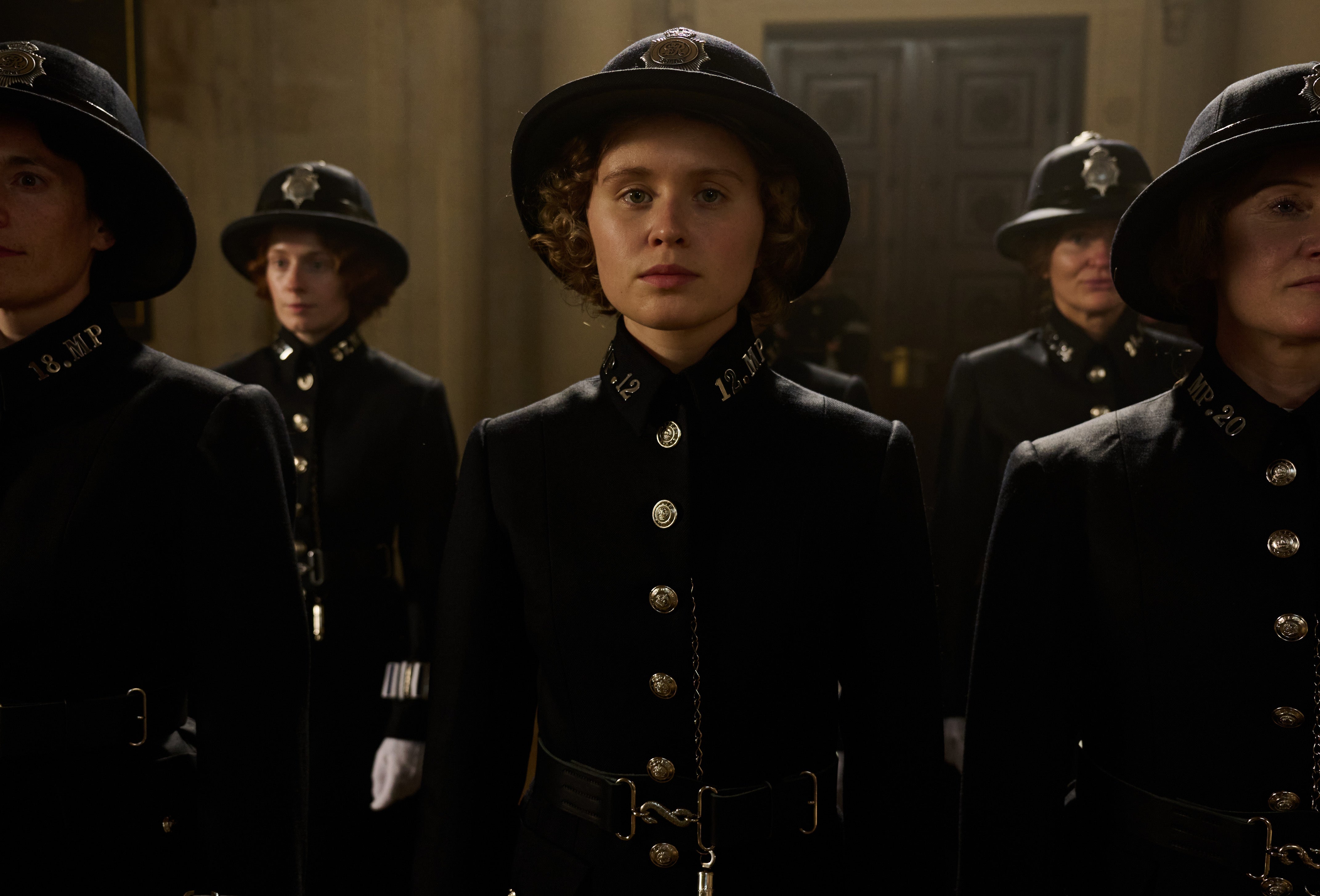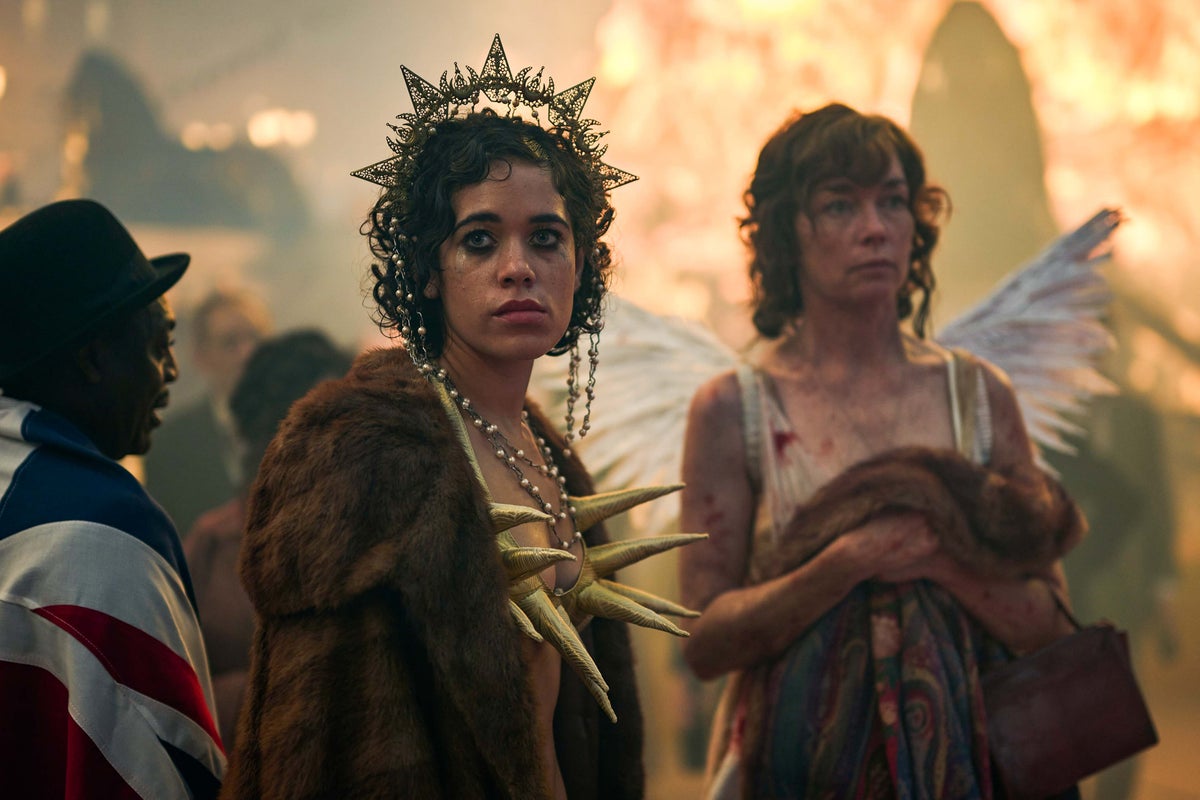A punchy modern soundtrack. Regular use of irreverent on-screen subtitles. An attitude and setting that reflects the surprising wildness of our recent past. It’s striking how influential the preoccupations and stylistic tics of Steven Knight have become but his ever-expanding canon of rough diamonds touting ugly talents and riddling street corner poetics casts a long shadow over Dope Girls, a drama that, with a slightly reductive inevitability, has been trailed in certain quarters as a spiritual sister to his global hit Peaky Blinders.
Set in 1918 London, this series is loosely based on Marek Kohn’s book Dope Girls: The Birth of the British Drug Underground. The year is significant – the First World War had unforeseen consequences on the home front, persuading thousands of women that there wasn’t much point in simply waiting for their menfolk to return and take control. They themselves had agency, having been forced to demonstrate it over the previous half-decade, and they were capable of moulding their own futures.
Kate Galloway (Julianne Nicholson) is one such woman. Her husband has dug a financial hole for his family and then taken his own life. Thanks to the war ending, she’s also lost her job and the home that came with it. So it’s off to Soho – unruly teenage daughter Evie (Eilidh Fisher) in tow – in search of her older daughter Billie (Umi Myers), a glamorous enfant terrible, who has plunged headfirst into the Big Smoke’s arty, druggy, sexy demi-monde and is shacked up with Michael Duke’s queer, Black, drag performer Eddie Cobb.
All in all, it’s a long way from the Home Counties and Kate is about to learn a few things – not all of them good, but many of them life-changing. She’ll learn that you shouldn’t cross organised criminals. That her daughters are more complex than she’d ever imagined. But mainly, she’ll learn that she herself has appetites and capacities that had previously been either suppressed or unacknowledged. This theme is the key to Dope Girls and unites the Galloways with Violet Davies (Eliza Scanlen), the ruthless but vulnerable undercover cop whose path they eventually cross. There’s empowerment to be found in hedonism and decadence but also, in the ferocious amorality with which Violet navigates the hidebound police force. The only way she can hope to rise is by swimming with the downward currents: accordingly, she’s more than happy to plumb the depths in search of her quarries.
Quite consciously, Dope Girls sidelines its male characters. Conniving cop Sgt Frank Turner (Ian Bonar), for instance, visibly withers before our eyes as the series progresses – his bullying misogyny is eventually no match for Violet’s clarity of purpose. But he’s also in hock to the Saluccis, an Italian crime family whose male members feel straight out of central casting but who are redeemed by the presence of matriarch Isabella (Geraldine James) bringing a certain vintage class to these grubby proceedings.

And so, the battle lines are drawn. Kate’s ambitions in clubland London expand along with her taste for the lifestyle. She and Billie realise that mother and daughter bonding time can extend to disposing of a body together. Violet discovers that there’s almost nothing she won’t do to avoid returning to the grim north country from which she’s escaped. These characters frequently stretch plausibility but are potentially compelling too.
And yet there is a sense that Dope Girls could go further. Unlike the picaresques it celebrates, the show itself never quite commits fully enough to its own milieu and its own concept. It needs to be braver to become, like the women whose stories it tells, more distinctively itself. A drama like this should, by rights, be slightly beyond the pale. It owes it to these outré, pioneering figures to go too far. It should be filthy, horrifying, transgressive and unapologetically jubilant about those things. Possibly, this imperative slightly clashes with the demands of primetime BBC One but there’s a sense that Dope Girls slightly pulls its punches. There’s a clunky, flat and anachronistic quality to much of the dialogue – did people really use phrases like “in a big way!” for emphasis 100 years ago? This is no minor quibble: these inconsistencies have a jarring quality. They’re alienating, working against full immersion.
Throughout, there are hints of a scandalous richness that never quite materialises on screen. Dope Girls never quite puts it all out there; never quite sings. Visually, there’s mild trippiness instead of the flat-out derangement demanded by the subject matter. Eventually, the show feels like a lavish curiosity; fun, but with an undertone of missed opportunity. Ultimately, it lacks drama. And however overfamiliar Steven Knight’s tropes are becoming, you can rarely accuse him of failing on that score. Despite their wild autonomy, these rough diamonds never quite find a poetry to call their own.

